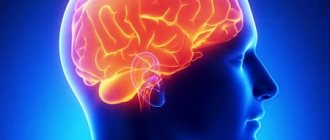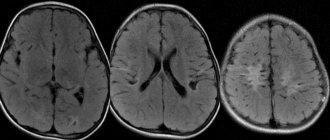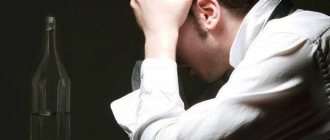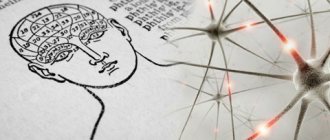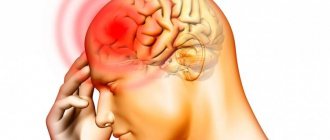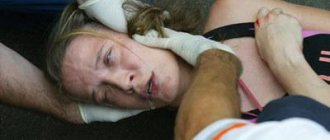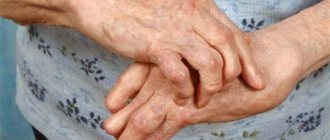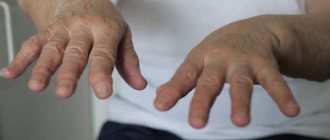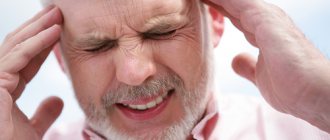What is fear?
First of all, it is instinct. In a normal state, this is an instinct of self-preservation. Just imagine, if there were no such mechanism, every person could commit many life-threatening actions. For example, jumping off a roof or throwing yourself into a raging river.
However, today we will talk about the species that does not preserve life, but, on the contrary, prevents us from enjoying it. This phenomenon is called a phobia. The result is a panic attack. A person cannot concentrate and constantly looks around in search of a life-threatening factor.
According to the teachings of the famous psychologist K. Izard, this is a basic emotion. In the process of experiencing it, the body is mobilized and avoidance behavior arises.
However, if attacks occur frequently, then the person begins to avoid any uncertain situations. Which undoubtedly affects the ability to enjoy life.
To be afraid or not is my choice!
Today's world is divided - quarantine zones, people locked in their houses, closed establishments, empty store shelves. In such an environment, it is difficult not to succumb to the general mood - despondency, hopelessness, anxiety. We all really lack positive energy, which helps cope with stress and gives hope for the best. Most of the information that comes to us comes down to statistics, news, opinions of real and armchair experts. Let's digress a little and talk about what worries each of us - how to understand our own fears, so as not to be afraid of our own shadow and try to succumb to general panic as little as possible.
It all depends on our perception
Reasons for appearance
The reasons are obvious and hidden. In most cases, a person does not remember where it all came from. That is why it is difficult to get rid of such emotions; the root of the problem does not lie on the surface of consciousness.
Obvious factors of occurrence:
- Feeling of uselessness, rejection. A person is afraid to be left alone with his difficulties;
- Risk of losing self-esteem;
- Depression;
- Fear of failure. At the same time, failure is perceived as inevitable.
Have you encountered this?
Normally, such an emotion does not last long and passes without consequences for the psyche. It is more difficult to cope with phobias that have hidden underlying causes. These are deep childhood experiences that an adult does not even remember.
These include excessive parental care (or lack thereof), domestic violence both towards the child and towards a significant family member. Any traumatic event in childhood or adolescence can cause obsessive panic in adulthood.
A little theory
How can we understand what our own fear is based on? First, let's look at what categories it can be divided into:
Physical fear. This is fear that is inherent in our instinct of self-preservation. It is written in our genetics as a reaction to the danger of physical pain and threat to life. This fear resonates in us stronger and brighter than all others, since it is based on the fear of loss - of one’s body, health, affection, comfort.
Abstract fear. It can also be called fear of the mind - what we experience inside ourselves and what our creative and cunning mind can “come up with”. The mind not only creates and interprets fears depending on the qualities of a person, but can also influence other people, drawing them into their own illusions.
Abstract fear is divided into personal fear and external fear.
One’s own fear (internal) arises thanks to a person’s imagination, something that a person invents and invents for himself based on his experience, qualities or programs.
But we receive external fear from society , which imposes social fears on us - fear that we will be judged, that we do not fit in, fear of the reliability of information, etc.
Fear is one of the most powerful ways to influence a person. Thus, fear of evaluation can lead to feelings of shame or guilt for not conforming to certain social patterns.
external fear we get from society
Types of fears
In order to effectively deal with such emotions, it is worth knowing what they are.
Conventionally, human fears are divided into three types:
Biological
These include everything that can pose a direct threat to human life. This is the very instinct of self-preservation that can save a person’s life;
Social
In this category, everything that concerns interaction with people, namely: fears in communicating with people, loss of a certain position in society, and others;
Existential
This includes a phobia of life (here it is difficult to make decisions, change something, improve one’s material and spiritual well-being), and a phobia of the unknown.
There are also other subspecies that are considered intermediate. For example, they include the fear of pain - on the one hand, getting terribly sick, on the other hand, breaking away from the team for a long period.
Thus, experience is obtained at the intersection of biological and social factors.
It is worth mentioning separately about obsessive fears. This type is characterized by the fact that a person realizes the groundlessness of his experiences, but cannot do anything about the periodic attacks.
This illusion of fear is dangerous because the root cause lies deep in the subconscious and in 90% of cases the help of a specialist is needed to solve the problem.
There is also a fear of being naked. The root of the problem may be abuse (physical or emotional) in childhood or adolescence. In this case, it will not be possible to do without the help of a specialist.
Night phobias, especially if they keep you from sleeping well, can occur due to increased levels of anxiety during the day. Stress accumulates during the day, and at night the psyche gives us the result.
But there is also a separate category - women's anxieties.
Women's fears:
- Loneliness;
- Old age;
- Unplanned pregnancy;
- Poverty;
- Completeness;
- To be worse than others.
Attention! The appearance of panic or fear should not be ignored!
Remember that if fear, as an emotion, arises too often, then the nervous system begins to overload and the consequences of constant stress manifest themselves at the bodily level in the form of diseases.
Carefully repressed social fears are the main cause of Panic Attacks
I will not begin my article with a meticulous retelling of what panic attacks are. Because my article is addressed to those who, unfortunately, already know very well what a panic attack or PA is. But he doesn’t know what to do with it and why “he has it”...
I will say only those words that are needed in the course of my research.
A panic attack is how the symptom complex – vegetative-vascular dystonia or VSD – expresses itself “materially”. You can clearly distinguish between panic attacks of “two scenarios”. Panic attack is an actress, and the word “script” is just from her repertoire.
Scenario one is a panic attack of the “panic fear of death” type.
Most often, it “covers” a person who is left alone, sitting in his apartment, often late at night, when “the whole world is sleeping and no one cares about us and it is inconvenient to call relatives and friends.”
It is clear that the subconscious suggests a “way out” - where it is “convenient” to call at two in the morning. Where where? To the ambulance! But for this you need a “reason”, otherwise they will send you away?
And the reason is found - the body “invents” nausea and vomiting, a surge in blood pressure, a “heart attack” or an incomprehensible weakness, when the only complaint is: “I think I’m dying, but I don’t know why.”
However, the “experienced” VSD-schnik, who has acquired a taste and is generally a neat person, inclined to organize everything in his life, including hysterical false symptoms, eventually settles on one thing, after a year of rehearsing various plays such a VSD person already knows exactly what he is dying from and chooses his favorite play - he invented “one” disease for himself so as not to confuse himself and the ambulance doctors.
A panic attack “fear of death” covers a person where and when he personally “feels alone” the most. Feeling alone is a very broadly understood sensation. For example, this is the feeling of being “in the camp of people who absolutely cannot be trusted and trusted” - because that’s what they are like:
- stupid,
- indifferent,
- incompetent
- selfish. (optional)
If you “feel alone” most when you are on the crowded streets of a metropolis, then panic attacks “fear of dying alone” happen there.
The second scenario is a panic attack of the “panic fear of losing face in society” type.
If panic attacks of the first type are “heart”, “paralysis”, “ace”, then the second scenario is mainly four social fears:
- fear of vomiting in public places,
- fear of embarrassment with a “small” toilet in a public place,
- fear of embarrassment with the toilet “in a big way” in the same public place,
- fear of losing consciousness and falling to the ground in an “indecent” manner for you – in a public place.
If the first type of panic attacks can be called “fear of physical death,” then the second type of panic attacks is a clear “fear of social death.” Psychotherapists call this the term “fear of losing face” or “fear of losing face.”
Most often, panic attacks of both types are mixed, and seem to be interpenetrated, but sometimes one of them begins to predominate.
The first step to defeating Panic Attacks (PA)
(he’s also the last one, don’t be afraid)
The cause of all panic attacks is our fears. And not simple fears, but “indecent fears”, fears – carefully, hastily (and disgustingly!) displaced by us from consciousness into the subconscious. Fears that we “forbid ourselves to experience”! Social fears.
In order to stop suffering from panic attacks, you need to do one single mental procedure: honestly deal with what exactly fears, and when, and why, we considered “indecent” for ourselves and... allow ourselves to be “afraid of them” to your heart's content!
More about this...
“I’m not afraid of this, because I’m not such a pathetic fool like Dasha. Only Dasha and others like her are afraid of this.”
Finding out exactly what fears you have kicked into the unconscious is easy.
Take a mental look at pitiful humanity and all your immediate surroundings. Think about how stupid people are, that they are afraid of this and that, but I’m smart, I’m not afraid of this at all.”
Where your indignation and contempt, “condescending pity” and desire to “laugh at the insane human race” begin to go off scale - stop. This is exactly what you yourself are afraid of, but you just don’t allow yourself to admit it!
Very often we consider ourselves superior to other people. In what way exactly are we superior to them? Well, at least in the fact that we somehow managed not to be a bit afraid of what they are afraid of, without hiding.
Very often I hear such reasoning from the lips of people close to me, who have already become almost saints, almost gurus:
- These stupid fools who are so afraid of getting old irritate me so much. Unhappy victims of a soulless consumer society! Pathetic bourgeois females! Having read advertisements for aesthetic clinics while sitting in a hairdresser! It would be better if they read Chekhov! They inject hyaluronic acid into your face! That's all they talk about! Let's talk better about Heidegger. Is it really so difficult to get used to the idea that growing old is inevitable and wonderful? Do they really lack a sense of good taste and spirituality - to grow old with dignity and give up on all this with an enlightened hand?
- How these people irritate me, running to jobs they don’t like, hysterically afraid of being left without a piece of bread and talking only about money. Don’t they know that Christ commanded to leave all your property and follow Him? Do they really lack a sense of taste and spirituality to enjoy the thought of possibly having to walk around with a bag and a piece of stale bread! Are they really that afraid for their property? I also like Christians. What do they do with their work and days? Some pigs who can’t raise their eyes to the sky...
- How these people irritate me, worrying about the absence of a man in their lives! Do they really lack a sense of subtle taste and spirituality to understand that it is much more stylish to be alone “than with just anyone”! Dating, dating, formal “relationships” – God, what are they doing with their lives? Are they afraid of the judgment of Rumor, which will not fail to note that “they have no one”? And this is an argument? What a “village”! Oh, pitiful human race! In the 21st century, is anyone else afraid of mob judgment?
***Sorry for the long examples. You will probably have your own.
But it is precisely these (and similar) thoughts, comparing oneself and others not in favor of people, that lead to panic attacks on the street or in an apartment at two in the morning. Let's continue and finish.
Pride is the cause of all neuroses and psycho-somatic
their ailments
People who are not ashamed to fear what we have written about in such detail above are in a more advantageous position than the “saints” puffed up with pride. Why? Using a simple formula:
“The fear that we openly admit to ourselves and discuss with people will not cause us any harm”!
This is such a paradox. When you are openly “afraid” of something, this fear does not have the slightest power over you.
Fear becomes your slow-motion killer only when you don’t admit to yourself that you have exactly this kind of fear!
Why don't we admit to ourselves that we have certain fears?
- Because we don't want to mix ourselves with a certain part of people whom we despise or even hate,
- Because we have painted for ourselves a Certain Image of Ourselves, which “according to legend” does not allow for certain fears at all.
Because we are filled with Pride and are afraid of “losing face.” We are afraid to be like everyone else, like little people... So, “fear of losing face”...
It is this, squeezed into the unconscious, that leads to a panic attack in the “loss of face” scenario.
Let's give a simple example.
An excellent student goes to an exam with a “terrible teacher” who “brings everyone down.” The entire course is afraid and openly discusses the upcoming horror, writes spurs, and looks for ways to hand over a bribe.
Only the excellent student girl remains silent, curling her lips contemptuously. Of course, let these “failing students” be afraid, she has no right to be afraid of a difficult exam. Her consciousness tells her: “So let’s see who did it for money and who is the future genius.”
But in fact, the excellent student girl is also afraid... Only, unlike her primitive idiot friends, she doesn’t even have anyone to chat with about the upcoming nightmare. The fear of the exam is repressed into the unconscious.
On the day of the exam, before reaching the audience, she feels like she is going to vomit. She turns pale, then turns green and is led home by the arms on wobbly legs with tremors all over her body.
“The face of an excellent student” has been preserved. The general verdict is this: “Sidorova overstudyed, she was overworked from science.” “It’s better this way,” Sidorova’s unconscious consoles her. The main thing is that no one found out that we were afraid of the exam, like everyone else.
Now imagine that such situations happen in your psyche all the time. Scary? It's creepy!
The right formula for dealing with social fear
Select the fears that most “irritate” you in people:
- fear that the husband will cheat “with a young woman” and create a new family “there” (ugh, what a woman’s vulgarity - husbands don’t leave Ideal Wives-Girlfriends);
- fear that the child will grow up to be a fool (Mine? Those who read Moomintroll already at six months? Never!);
- fear “what people will think” that you don’t have money, men, a vacation in the Maldives, European-quality renovations in the kitchen (Ugh! I’ll still be afraid of this!);
Now start saying the formula: “I’m not afraid of this _____ (fill in as necessary) ______ because...
and now tell me honestly why you are “not afraid” of this. Well? Here are the possible answers:
- I am not afraid of this, because I am a church-going Christian, and a Christian should not be afraid of anything worldly;
- I'm not afraid of it because I'm a man
- I'm not afraid of this, because I'm a Russian intellectual,
- I'm not afraid of this, because I'm a fantasy,
- I’m not afraid of this, because I’m not Dasha Potselueva and her soulless friends,
- I’m not afraid of this, because no one in our family was afraid of anything,
- I’m not afraid of this, because if I allow myself to be afraid of this, then I will lose this job of mine and then my life will go downhill and my children will die of hunger.
These are all wrong answers...
Fear requires working with it. Fear requires the light of reason shed on it, and understanding, and constructive methods of action. Fear requires cognitive (reasonable) sets of measures and efforts.
Fear does not like it when the task assigned to it is not solved, but is swept under the rug in a fit of pride.
Swept under the carpet, fear accumulates there and takes revenge. Panic attacks and VSD.
There is a banal loosening of the nervous system. You can't live with such a burden. It's as if you killed a person, hid the body in the garage and have lost peace and sleep ever since. The only way is to relieve your soul and repent.
The same goes for repressed social fears of “losing face.”
The only way is to repent and admit to yourself that you are the same person as everyone else, you are afraid of the same things as everyone else and neither your grandmother’s noble origin, nor the rank of aviation colonel, nor three higher educations, nor spiritual affiliation, nor a Gestalt diploma -therapists have not yet made you one iota “above” other people.
Anyone who is afraid of “losing face”, experiencing the fears characteristic of “stupid” people, will receive a “pig” from his autonomic nervous system in the form of:
- public vomiting,
- public uterine bleeding,
- public urinary incontinence, public diarrhea
- or publicly fainting in the street dust.
***
Finally say the correct formula:
“I’m still afraid of being left without housing, without work and without money. But I don't have to be afraid of it. Not because I am “a Christian who is ready to go barefoot and beg at the gates of the temple even now, I am so spiritual.” This is all nonsense! But I don’t have to be afraid of financial difficulties simply because...” There are a hundred rational schemes of action. And I recognize them. You should have enough intelligence, a lot of information, even on the Internet. Talking to people who have experienced this or are experiencing it now is also important. Stop pretending to be white-handed, avoiding seeming funny, weak, worried about pressing problems...
*** So, we have dealt with you in the scenario of a panic attack “PA” like “Public fear of “Losing face””
All that remains is to deal with the Panic Attack according to the scenario
Panic fear of death
Let me remind you that a panic attack according to the “fear of death” scenario most often happens at home, alone, at night - or where a person suddenly feels most acutely his loneliness and uselessness to people.
Manifestations of this panic attack (if a person is simply “not aware” of other, other ways to suddenly die) are pseudo-poisoning, pseudo-angina (heart attack), pseudo-asthma and pseudo-stroke. Some “smart” patients still have “stones”, but, of course, there is no rockfall anywhere.
The cause of a panic attack “fear of death” is a parental and general cultural ban on thoughts and conversations about your death.
Result: displacement of the fear of one’s own death and the very thoughts about the finitude of a person (and specifically you) into the unconscious. There it lives and swells...
Do you remember how your parents told you at the age of five: “Don’t think about it, daughter... You still have to live and live.”
The most harmful formula of our culture for mental health or “You still have to live and live”
This phrase screws everyone who was formed in our culture, which blatantly denies death and its value.
Type 1 panic attacks or "fear of death" first appeared in the 19th century, in an industrial society that
- firstly, it abolished God, putting science and technological progress in his place,
- and secondly, it made life on earth very bearable and comfortable thanks to the same science and technological progress.
Thus, death was no longer a frequent guest in houses with iodine, telephones and chlorinated tap water. Previously, they weren’t particularly afraid of her, because they saw her almost every day - she became familiar.
In addition, life was not so comfortable, but rather very difficult; I only managed to accumulate a wooden spoon and an accordion - parting with such goods was not very difficult.
And not a flat, not a crudely materialistic vision of the world promised existence even after the physical death of the body.
A panic attack of the “fear of death” type is easily treated. Show respect for death and it will stop scaring you.
***
That's all for today. To everyone who is interested in the topic of fears, vegetative-vascular dystonia (VSD), panic attacks (PA) and fear of death - I will for now recommend Kurpatov’s popular books relevant to the topic (leave your pride here, please) and the VKontakte group “Death in the Russian Tradition” " Don't be afraid of anything!
Elena Nazarenko
© — psychological portal
The most important question
What should I do if I know the cause of fear - a virus that has swept the entire planet. How can I not give in to panic, because my life and the lives of those close to me are in danger?
Take conscious, reasonable actions , knowing and accepting your fears. You always have the right to choose - to give in to panic, sit constantly on the news and social networks and live in the negative thoughts of strangers. Then fear will take control of you, and you will continue to live in your own illusions. But you have the power to change your perception, to see the situation as objectively as possible. This way you can help yourself and your loved ones - protect them from panic and negative thoughts. And thereby preserve your physical, spiritual and mental health!
you have the power to change your perception, to see the situation as objectively as possible
Let's get ourselves out of a state of panic!
How to work with your fears? You need to be able to identify them within yourself and understand the reason for their occurrence.
Try to calm down a little. Not appearing calm, hiding your unconscious fears - this does not go away the internal tension, and you begin to squeeze yourself even more. Just try to “balance” so that you have the opportunity to look into yourself. For everyone, this can be a different way - breathe, do yoga, meditation, sports, favorite music, funny videos. In short, anything that can distract you from obsessive thoughts and states.
Realize and accept that you have fear. Every person has them, and it makes no sense to deny the fact that fears can be hidden in you too. You need to accept this fact for yourself. After all, accepting a problem is the first step to solving it.
Look inside yourself. Identify and understand what kind of fear is inside you and where it comes from. Is it abstract or physical? Forced or internal? Even if you feel physical fear inside, try to feel what fears it “catches” and what they are connected with.
Understand the cause of fear. What caused it? What event or thoughts? Is this reason real? Or does it just seem like it? Try to create for yourself as objective a picture as possible. You can write down for yourself the aspects that scare you the most and analyze them separately.
Knowing the reason, be fearless to work with that reason. Knowing the cause of fear, you begin to dissolve this fear within yourself by realizing the degree of its danger for yourself personally. And when you know, it doesn’t seem so scary to you anymore.
Understand that any fear can be both a restraining force if you are not aware of it, and a development factor if you are aware of it and overcome it.
We tell you how to work with your fears, unconscious programs, and negative emotions in our course dedicated to this problem.
The benefits and harms of fear
Psychologists say: although the emotion of fear is negatively colored, in small quantities it can even be useful. And in general, it is normal to have fears and phobias. This does not mean that every person who is faced with an insurmountable fear of something should live his whole life under fear. When a phobia has become a problem, it must be fought, but to destroy any manifestation of fear means going against nature. After all, historically, fear of the unknown protected people from negative external factors.
How is fear useful?
The benefit of fear lies in its main function: to protect a person from danger (in other words, to turn on). Only at first glance this emotion is useless, but it arose in the process of evolution in order to protect the individual from surrounding troubles, external factors and threats. We can name the following situations when fear is useful:
- Fear of heights saves you from falling. Water - from getting caught in a storm. Darkness - from meeting robbers and rapists in the evening park.
- Fear of the unknown and inner instinct protects against communication with dangerous objects (matches, knives), people and animals.
- In dangerous situations, it is produced in the brain, which has a positive effect on muscle tone.
- A surge of adrenaline in the blood causes a person to begin to think and act faster and more harmoniously. But not always.
The Harm of Fear
The absence of fear would bring humanity to the brink of extinction, but in some cases fear is harmful. Feeling threatened does not always help a person act at the limit of his capabilities. Another scenario for the development of events in a dangerous situation looks like this:
- movements are constrained;
- breathing is disturbed, knocked down;
- a person cannot think and act normally;
- panic attacks occur.
Physiology
A patient whose amygdala was destroyed due to Urbach-Wiethe disease showed a complete absence of fear [13][14][15].
Two neural pathways of fear
The development of fear is determined by two neural pathways that, ideally, function simultaneously. The first of them, responsible for the development of basic emotions, reacts quickly and is accompanied by a large number of errors. The second one reacts more slowly, but more accurately[16].
Fast way
The first way allows us to quickly respond to danger signs, but often triggers as a false alarm. The second way allows us to more accurately assess the situation and respond to the danger more accurately. In this case, the feeling of fear initiated by the first pathway is blocked by the functioning of the second pathway, which evaluates certain signs of danger as unreal.
In the first path (low, short, subcortical), the emotional stimulus, reflected in the sensitive nuclei of the visual thalamus, closes on the amygdala nuclei of the visual thalamus, causing an emotional response.
A long way
In the second path (high, long, cortical), the emotional stimulus, reflected in the sensitive nuclei of the thalamus, ascends to the sensory parts of the cerebral cortex and from them is sent to the nuclei of the amygdala (almond-shaped) complex, forming an emotional response.
With phobias, the second pathway functions inadequately, which leads to the development of a feeling of fear in response to stimuli that do not pose a threat.
What does panic lead to?
The moment society begins to put too much pressure on us, panic . Under the influence of negative information, under general pressure, external fear turns into panic, which affects our instinct of self-preservation - physical fear for our body. Panic triggers physiological processes in our body that literally force us to flee from the threat of the outside world.
But we cannot run away anywhere, because fear is within ourselves. And therefore we turn on super control, which puts even more pressure on us. Instead of washing their hands after going outside, regularly purchasing groceries, or finding something interesting to do at home, most people use liters of antiseptic in ten minutes, frantically stock up shelves of groceries, or chaotically search for information on the Internet. That is, instead of the instinct of self-preservation, we turn on the “emergency evacuation mode,” which is based on a distorted perception of reality and our actions.
The moment a person experiences a panic attack, he loses trust in himself and in the world . He loses his internal guidelines, replacing them with information from the outside, which he pictures in his imagination in a distorted, often exaggerated form.
Due to information from the outside world, into which a person is immersed more and more, his thinking becomes negative
Due to information from the outside world, into which a person is immersed more and more (media, opinion of “experts,” forecasts, rumors), his thinking becomes negative . We experience a general panic, and thus our negative thinking begins to be reflected in our physiology. The hormonal system begins to malfunction and produce stress hormones.
Through control, we try to regain trust in ourselves and in the world. We experience internal conflicts, struggles and are constantly in tension. Neither our body nor our mind rests, and we spend all our energy on fear and panic.
These are the consequences of panic. Right at this moment, you can literally feel these symptoms, which are reflected in our sensations, in our body. But don't panic ! You can find a way out of every condition.
Literature
- Freud Z.
Emotions and feelings Agape · Antipathy · Apathy · Anxiety · Reverence · Gratitude · Fear · Guilt · Attraction · Infatuation · Indignation · Admiration · Hostility · Anger · Pride · Sadness · Annoyance · Pity · Envy · Confusion · Gloating · Anger · Amazement · Interest · Love · Metanoia · Hope · Tension · Tenderness · Hate · Rejection · Uncertainty · Nostalgia · Resentment · Sadness · Loneliness · Disgust · Despair · Contempt · Sadness · Disdain · Attachment · Joy · Irritation · Frustration · Remorse · Jealousy · Sympathy · Grief · Boredom · Storge · Happiness · Regret · Passion · Fear · Shame · Longing · Anxiety · Trembling · Infatuation · Surprise · Confidence · Satisfaction · Pleasure · Humiliation · Philia · Frustration · Euphoria · Enthusiasm Affects Fear · Panic · Terror · Euphoria · Ecstasy · Rage Moods Boredom · Dejection · Hypotymia · Hyperthymia : Incorrect or missing image To improve this article on psychology, it is advisable to: - Find and arrange in the form of footnotes links to independent authoritative sources that confirm what is written. K: Wikipedia: Articles without sources (type: not specified)
Notes
- ↑ 12
Fear // Explanatory dictionary of the living Great Russian language: in 4 volumes / author's compilation. V. I. Dal. — 2nd ed. - St. Petersburg. : Printing house of M. O. Wolf, 1880-1882. - Leontyev, Alexey Nikolaevich.
[flogiston.ru/library/leontev
Needs, motives and emotions
] (Russian). - Moscow, 1971. - Izard, Carol Ellis.
Theory of differential emotions // [elenakosilova.narod.ru/studia3/izard/izard.htm
Psychology of Emotions
] = The Psychology of Emotions. - Peter, 2007. - P. 54. - 464 p. - (Masters of Psychology). — 3000 copies. — ISBN 5-314-00067-9 ISBN 978-5-314-00067-0. - Izard, Carol Ellis.
Fear and anxiety.
// [elenakosilova.narod.ru/studia3/izard/izard.htm Psychology of Emotions
] = The Psychology of Emotions. - Peter, 2007. - P. 292. - 464 p. - (Masters of Psychology). — 3000 copies. — ISBN 5-314-00067-9 ISBN 978-5-314-00067-0. - Goryanina V. A.
Psychology of communication: Textbook. aid for students higher textbook establishments. - M.: Publishing House, 2002. - 416 p. - [psysphera.narod.ru/MKB.html International statistical classification of diseases and health-related problems. 10 revision] = International Statistical Classification of Diseases and Related Health Problems: Tenth Revision. - M.: Medicine, 2003. - T. 1-4. — 2440 s. — 2000 copies. — ISBN 5-225-03268-0, ISBN 5-225-03269-9, ISBN 5-225-03280-X.
- [vphil.ru/index.php?option=com_content&task=view&id=886&Itemid=52 Journal “Questions of Philosophy” - Fears in life and living in fear]
- Morgunova L.N., Musina A.N., Shirinskikh T.V. Children's fears // Development of modern education: theory, methodology and practice. - 2020. - No. 4 (6). — P. 431
- Kolpakova A. S., Pronina E. V. Children’s fears and their causes in children of primary school age // Almanac of modern science and education. - 2014. - No. 4 (83). — P. 84
- Morgunova L.N., Musina A.N., Shirinskikh T.V. Children's fears // Development of modern education: theory, methodology and practice. - 2020. - No. 4 (6). — P. 431
- Petrova M.V. Resources of social and cultural activities of children's public organizations in overcoming social fears among adolescents // Modern problems of science and education. — 2014. — No. 6. — P. 712
- Shcherbatykh Yu.V.
Get rid of fear. - M.: Eksmo, 2011. - 304 p. ISBN 978-5-699-45683-3 - Feinstein, Adolphs, Damasio and Tranel
[www.sciencedirect.com/science?_ob=ArticleURL&_udi=B6VRT-51PYH51-1&_user=10&_coverDate=12%2F16%2F2010&_rdoc=1&_fmt=high&_orig=search&_origin=search&_sort=d&_docanchor=&view=c&_acct= C000050221&_version= 1&_urlVersion=0&_userid=10&md5=f55ecd8b2b121d5b49b0e721da0d95bc&searchtype=a The Human Amygdala and the Induction and Experience of Fear] - Current Biology, Published online: December 16, 2010 - Richard Alleyne
[www.telegraph.co.uk/science/8207235/A-woman-with-no-fear-could-help-traumatised-soldiers.html A woman with no fear could help traumatised soldiers] - The Telegraph, 16.12. 10 - [medicine.newsru.com/article/17dec2010/besstra6nayadam A unique case: a woman who does not feel fear lives in the USA] - NEWSru.com, 12/17/10
- Joseph le Doux. The Emotional Brain
. Weidenfield & Nicholson Ltd., London 1998


